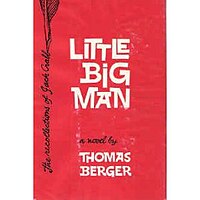As it has for the last several years, Turner Classic Movies has devoted its schedule this August to showcasing one star a day. This has been hell on my DVR, and I’ve had to make some difficult decisions about which movies I can afford to wait until TCM decides to show again. Of course, some stars are bigger than others. Inspired by Summer Under the Stars, here are my ten favorite classic movie actors and actresses of all time. Later on I’ll try to get to my favorite “current” actors and actresses.

Ladies First:
1. Katharine Hepburn: Headstrong, willful, independent, and proud. Her superior, patrician exterior belied a warm, vulnerable person inside. Too many great performances to list them all, but I especially love her in The Philadelphia Story, Bringing Up Baby, Adam’s Rib, Woman of the Year, and Holiday.
2. Barbara Stanwyck: Double Indemnity, Ball of Fire, The Lady Eve, Meet John Doe, and Sorry, Wrong Number.
3. Ingrid Bergman: Casablanca, Notorious, Spellbound, The Bells of St. Mary’s, Murder on the Orient Express.
4. Grace Kelly: Rear Window, To Catch a Thief, Dial M for Murder, High Noon.
5. Faye Dunaway: Chinatown, Network, Bonnie and Clyde.
6. Bette Davis: All About Eve, The Man Who Came to Dinner, Mr. Skeffington.
7. Lauren Bacall: The Big Sleep, Key Largo, To Have and Have Not, Murder on the Orient Express.
8. Maureen O’Hara: The Quiet Man, Miracle on 34th Street.
9. Shirley MacLaine: The Apartment alone would put her on this list.
10. Myrna Loy: The Thin Man series.
Honorable Mention: Marilyn Monroe, Audrey Hepburn, Jean Arthur, Thelma Ritter, Rosalind Russell, Deborah Kerr, Teresa Wright

Now the Gents:
1. Cary Grant: Effortlessly charming, breezily funny, impeccable line reading and comic timing. A remarkably physical actor. My favorite movies of his include His Girl Friday, Arsenic and Old Lace, North by Northwest, To Catch a Thief, Notorious, The Philadelphia Story, The Awful Truth, and Holiday.
2. Jack Lemmon: Incredible range, lovable everyman, wonderfully funny. Love him in The Apartment, The Fortune Cookie, Some Like it Hot, The Odd Couple, and Mister Roberts.
3. Jimmy Stewart: It’s a Wonderful Life, You Can’t Take it with You, Rear Window, Rope, Vertigo, Harvey, Anatomy of a Murder, Mr. Smith Goes to Washington, and The Man Who Shot Liberty Valance.
4. Paul Newman: The Hustler, The Sting, Butch Cassidy and the Sundance Kid, The Verdict, Cool Hand Luke.
5. Spencer Tracy: Inherit the Wind, Boys Town, Woman of the Year, Adam’s Rib, Guess Who’s Coming to Dinner, It’s a Mad, Mad, Mad, Mad World.
6. Humphrey Bogart: Casablanca, The Maltese Falcon, The Big Sleep, and The Caine Mutiny.
7. John Wayne: The Quiet Man, The Man Who Shot Liberty Valance, The Searchers, True Grit, The Sons of Katie Elder.
8. William Holden: Network, Stalag 17, The Bridge on the River Kwai, Sabrina, Sunset Boulevard.
9. Walter Matthau: The Bad News Bears, The Odd Couple, The Fortune Cookie, The Taking of Pelham One Two Three, The Sunshine Boys.
10. Marlon Brando: If Brando had only been in On the Waterfront, he still might have made this list. It’s the best performance I’ve ever seen by an actor.
Honorable Mention: Henry Fonda, Robert Redford, George C. Scott, Gary Cooper, Lee J. Cobb, Karl Malden, Edward G. Robinson, James Mason, Steve McQueen, Frank Sinatra.







